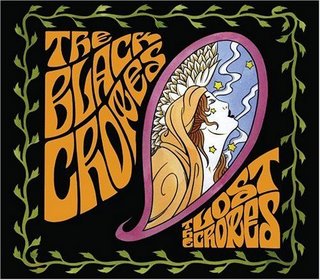U2: How To Dismantle An Atomic Bomb

For your consideration, click on the artwork and enjoy U2's most recent released classic album. I'm just sayin'
"HOW TO DISMANTLE AN ATOMIC BOMB" (2004):
Essentially, U2 are trying to revirginize themselves, to erase their wild flirtation with dance clubs and postmodernism so they can return to the time they were the social conscience of rock music. Gone are the heavy dance beats, gone are the multiple synthesizers, gone are the dense soundscapes that marked their '90s albums, but U2 are so concerned with recreating their past that they don't know where to stop peeling away the layers. They've overcorrected for their perceived sins, scaling back their sound so far that they have shed the murky sense of mystery that gave The Unforgettable Fire and The Joshua Tree an otherworldly allure. That atmospheric cloud has been replaced with a clean, sharp production, gilded in guitars and anchored with straight-ahead, unhurried rhythms that never quite push the songs forward. This crisp production lacks the small sonic shadings that gave ATYCLB some depth, and leaves How to Dismantle an Atomic Bomb showcasing U2 at their simplest, playing direct, straight-ahead rock with little subtlety and shading in the production, performance, or lyrics. Sometimes, this works to the band's detriment, since it can reveal how familiar the Edge's guitar has grown or how buffoonish Bono's affectations have become (worst offender: the overdubbed "hola!" that answers the "hello" in the chorus of "Vertigo"). But the stark production can also be an advantage, since the band still sounds large and powerful. U2 still are expert craftsmen, capable of creating records with huge melodic and sonic hooks, of which there are many on HTDAAB, including songs as reassuring as the slyly soulful "Sometimes You Can't Make It on Your Own" and the soaring "City of Blinding Lights," or the pile-driving "All Because of You." Make no mistake, these are all the ingredients that make How to Dismantle an Atomic Bomb a very good U2 record, but what keeps it from reaching the heights of greatness is that it feels too constrained and calculated, too concerned with finding purpose in the past instead of bravely heading into the future. It's a minor but important detail that may not matter to most listeners, since the record does sound good when it's playing, but this conservatism is what keeps HTDAAB earthbound and prevents it from standing alongside War, The Joshua Tree, and Achtung Baby as one of the group's finest efforts.


















